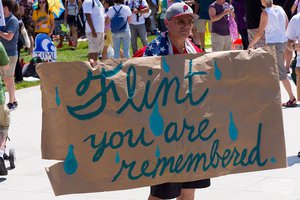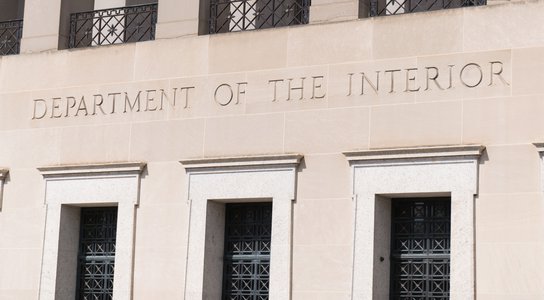On National Whistleblower Day, we spotlight three cases where people spoke truth to power and exposed wrongdoing in the United States. When you hear the term “whistleblower” you may think of Watergate, Snowden or Chelsea Manning, but whistleblower protection in the United States dates all the way back to 1778.
It started with 10 sailors, torture, and a Navy commander. After a group of revolutionary sailors and marines filed a petition decrying their superior’s torture of captured Brits, swift retaliation ensued. Congress stepped in and declared it the duty of all persons to notify them of misconduct, fraud, or misdemeanors committed on behalf of the US. And with that, the first whistleblower protections were on the books.
On July 30, the US celebrates National Whistleblower Day and the role they have played in America’s history against tyranny, exposing egregious abuses of power along the way. While whistleblower protection laws in the US are defined to protect federal employees who make disclosures evidencing illegal or improper government activities, here we spotlight a few who have more broadly blown the whistle on wrongdoing, and changed the game as a result.1. The extent of harm posed to children in immigrant detention centers in the US
Dr. Scott Allen and Dr. Pamela McPherson first warned of the harms of
child detention back in 2014. The physicians became contractors to the
Department of Homeland Security (DHS) under President Obama and were
responsible for inspecting immigrant detention centers. Noting an utter lack of
adequate care in an Artesia facility, they warned
the government that "if it continued to detain at-risk
children, loss of life was a real possibility."
This past March, Dr. Allen
and Dr. McPherson raised new concerns about how family detention has expanded
under the Trump administration. When efforts to alert DHS officials went
unheeded, they addressed a
letter to Congress, stating the expansion “has resulted in real
harm."
In the last year, at least 7 children are known
to have died in immigration custody. Journalists, public officials and civil
society have amplified concerns about conditions in detention facilities. Public
outcry exploded last month after the
Justice Department argued that migrant detainees
aren’t entitled to toothbrushes and soap as a part of the “safe and sanitary”
conditions mandated by law. Meanwhile, thousands
of claims have been made by detained
children reporting sexual
abuse.
Dr. Allen and Dr. McPherson say they haven’t faced the sort of professional pushback common for whistleblowers, but two things have also not occurred: They have not been called to inspect another family detention facility, nor have the government’s policies on this changed. One thing that has changed, though, is public attention on the need for just and dignified treatment of migrants.

Photo credit: Mark Dixon from Pittsburgh, PA, Creative Commons
2. The public health failure of Flint’s water crisis
It has been 5 years on now that families in Flint, Michigan have not been able to trust in the water running from their taps. It took the combined efforts of a concerned mother, a renowned scientist and a pediatrician to spotlight spiking lead levels in the city’s water that correlated with elevated lead blood levels in children. This public health crisis, which began shortly after the city turned to the Flint River as a water source to cut costs, shows problems at each scale in management, transparency, and accountability.
This is not an isolated concern. 18 cities in Pennsylvania have higher lead exposure than Flint, while 1 in 5 metered homes sampled in Chicago found spikes of brain-damaging lead levels in the water.
At this week’s Democratic presidential debates in Detroit, candidates should address the failures that have allowed the crisis in Flint and in exploited communities across the country to occur.
3. Spreading the anti-climate agenda in the Trump administration
Turnover
in Trump’s Cabinet is unprecedented in recent
history. Ethics concerns have plagued some Cabinet members and potential
conflicts of interest abound, such as close ties to the oil and gas sector even
within the agencies responsible for their oversight.
So many faces have come
and gone that it might be hard to remember back to 2017 when Department of
Interior (DOI) Secretary Ryan Zinke began shuffling positions around Interior.
After
dozens of senior staff were reassigned, senior scientist Joel Clement published
a Washington Post op-ed claiming to “blow the whistle on the Trump
administration.” He alleged he was being retaliated against for speaking out on
climate impacts threatening Alaskan Native communities, with the intent to
force his resignation. The DOI Inspector General investigated, and ultimately noted
the failure of leadership to document its decision-making process meant they
were unable to come to a conclusion on its legality. For his part, Clement has
continued tracking the DOI’s increasingly
anti-climate agenda,
including the largest reduction of protected lands in American history.
[In case
you missed it, we exposed two other questionable cases at the DOI earlier this
year: The apparent conflicts of interest around senior DOI
official Susan Combs – who profits off the same oil and gas
companies that publicly support DOI reorganization plans – and a report showing
how now DOI Secretary David
Bernhardt may have misled Congress about his previous lobbying activities for a Ukrainian
oligarch.]
In all of these instances, it is apparent that when oversight fails,
communities pay the price. Perhaps it is best to return to original thinkers in
this regard: In such cases it is the duty of the citizen to report. The duty of
the citizen to blow the whistle.
But such a responsibility can sometimes come at great cost. That’s where SecureDrop comes in. Developed by the Freedom of Press Foundation, it allows someone to send messages and data without the sender revealing any identifying information about themselves (like an IP address). We have a detailed instructions page on how to use SecureDrop to anonymously and securely share information. Because nothing changes without everyday truth-tellers coming forward and speaking up.


